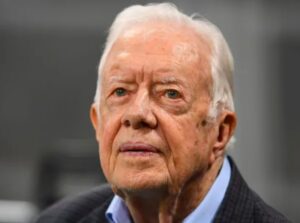
The Kremlin has confirmed that the long-established “special hotline” between Russia and the United States, created in 1963 to resolve crises through direct communication, is no longer operational. Kremlin spokesperson Dmitry Peskov disclosed this in an interview with Russian news agency RIA on Wednesday, November 20, as reported by Reuters.
The statement comes amidst heightened tensions between Russia and the West—the most severe in decades—fueling fears of nuclear escalation. The hotline was initially set up after the Cuban Missile Crisis to prevent misunderstandings that could lead to catastrophic conflicts.
Peskov noted that a secure communication line between the two nations’ leaders still exists, even allowing video calls. However, when asked if the channel was currently active, he replied, “No.”
Read Related News >>
Russia criticized the U.S.’s recent provision of ATACMS long-range missiles to Ukraine, calling it a sign of the West’s intent to escalate the conflict. The Kremlin considers these weapons, which Ukraine used to strike deep into Russian territory for the first time on November 19, as evidence of Washington’s direct involvement in the war.
The conflict, which began in February 2022 with Russia’s full-scale invasion of Ukraine, has led to devastating consequences, including thousands of civilian deaths and millions displaced. Ukrainian President Volodymyr Zelensky had long urged the U.S. and NATO allies to supply long-range weapons to target Russian military and transport infrastructure.
Moscow views the use of such weapons as an act of direct U.S. military support, warning it could provoke retaliation. Russian diplomats likened the current crisis to the 1962 Cuban Missile Crisis, which brought the Cold War superpowers dangerously close to nuclear conflict.
The Kremlin emphasized its updated nuclear doctrine, designed to clarify that any attack on Russia would prompt inevitable retaliation, underscoring its belief in nuclear weapons as a deterrent. Peskov concluded by accusing the West of using Ukraine as a tool to achieve strategic objectives against Russia, asserting that such tactics would not force Moscow to retreat from its goals in Ukraine.







1 thought on “Kremlin Confirms ‘Special Hotline’ with U.S. No Longer Operational”